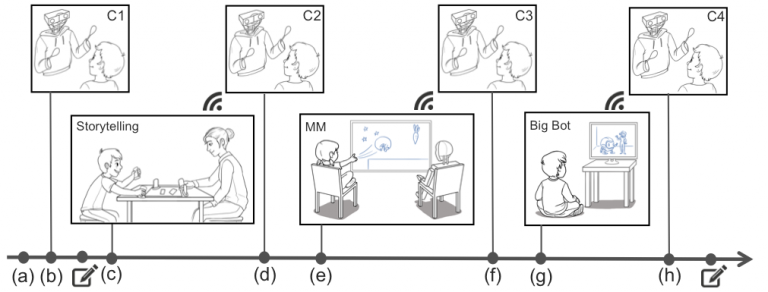Persistent Memory in Repeated Child-Robot Conversations
In this work, we investigate how a robot can use information from prior conversations with the same child to foster a sense of relationship over time.
June 27, 2017
Interaction Design and Children (IDC) 2017
Authors
Iolanda Leite (Disney Research)
Andre Pereira (Disney Research)
Jill Lehman (Disney Research)
Persistent Memory in Repeated Child-Robot Conversations
Persistent memory is a critical mechanism in long-term human-robot interaction. In this work, we investigate how a robot can use information from prior conversations with the same child to foster a sense of relationship over time. To address this question, we conducted a repeated interaction study with three experimental conditions: a baseline control condition, in which the robot retains no information between conversations and relies on a typical elicitation response paradigm; a persistence condition, in which children experience the same topic flow but with some robot turns that refer back to prior shared events; and a pro-active persistence condition, in which the robot attempts to offer its own feelings and opinions pro-actively and congruently with what it knows about the child. Our results indicate age differences with respect to the measures of interest. During conversations with the robot, older children who were assigned to the persistence conditions exhibited more positive affect, while younger children showed more positive affect in the control condition. Moreover, in a set of comparative judgments among robots they had played with, children in the augmented persistence condition considered PIPER to be the most intelligent and their favorite more often than children in the other conditions, overall, but the effect was more evident in the older children.

